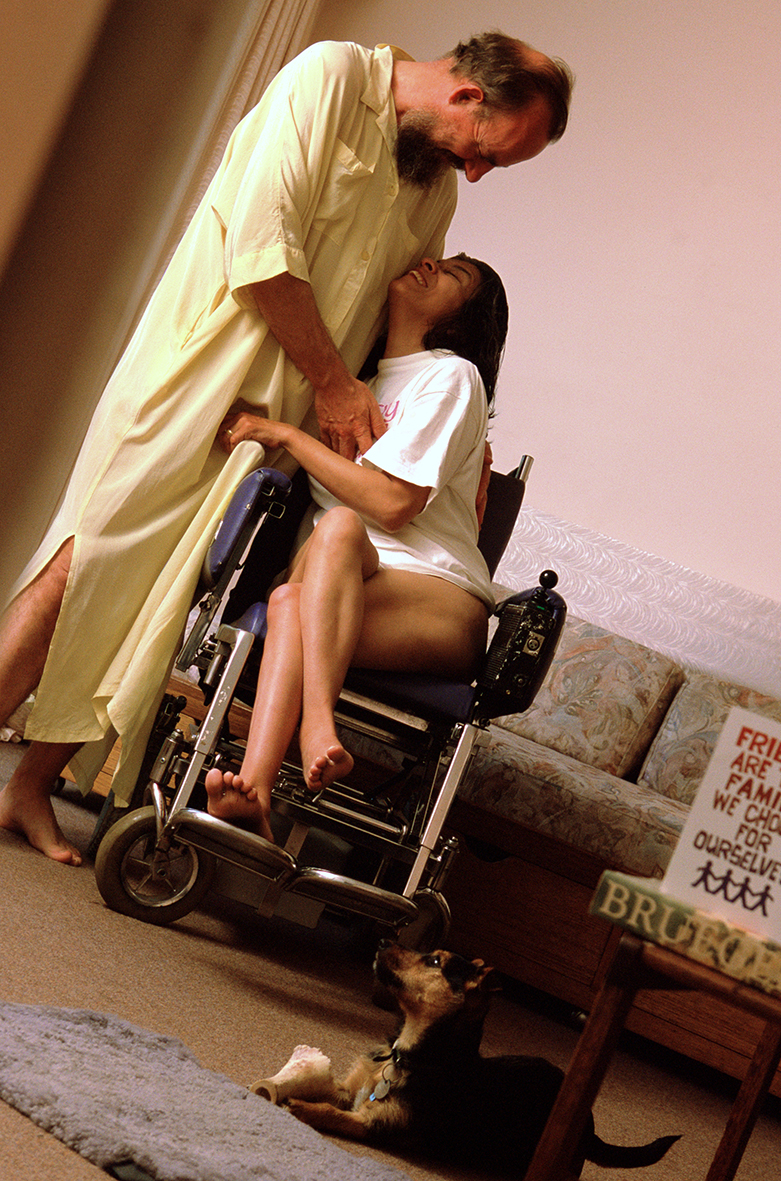Ingrid has a Bachelor of Arts in Social Sciences. She was the Co-facilitator of the ‘Sexuality, Disability and the Philosophy of Choice’ project, the precursor to AccSex, a worldwide email group activating for accessible sex. She is a Community Development Student and Worker. Ingrid has Cerebral Palsy.
Robert is a Massage Therapist and Ingrid’s primary carer.
